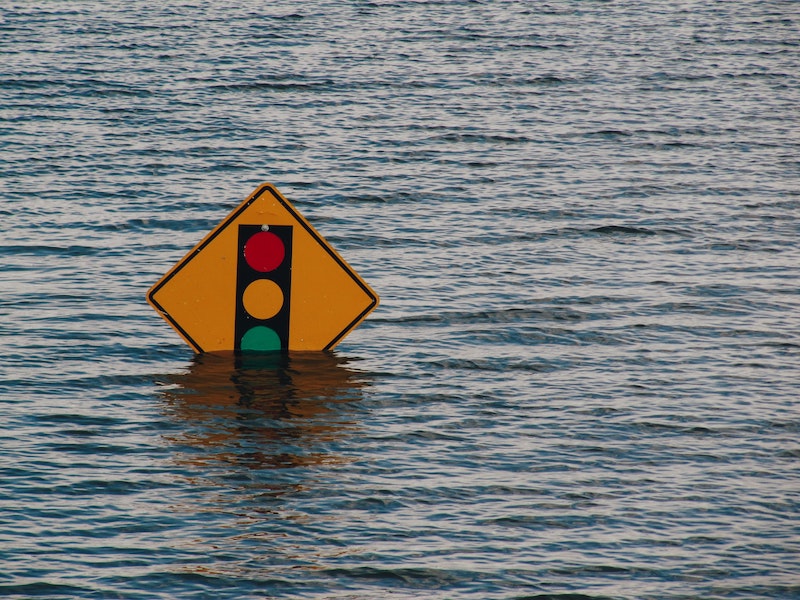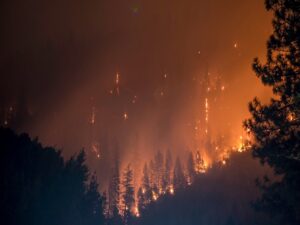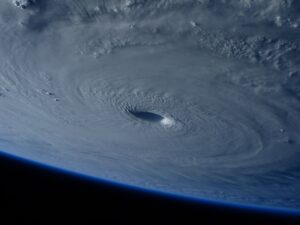We’re facing a wicked problem unlike any other
Systemic social problems are rarely simple to solve, yet most have been defined by heroic leadership. Martin Luther King was the face of the civil rights movement in America. Nelson Mandela’s freedom from prison after 27 years marked the end of apartheid in South Africa. Mahatma Gandhi, a pioneer of non-violent direct action, was a spearhead in ending the British colonisation of India. Each became a symbol of movements fighting for change. But what about the climate crisis? We’re facing an existential crisis that threatens our very existence, so why is there no such leader stepping up to the plate and serving as a symbol of change?
Now, it’s not entirely true that no one is stepping up to the plate. Environmental groups like Extinction Rebellion and Fridays For Future, are activists that are calling for global systems change to adapt to the climate crisis. But, these groups are still on the fringes of society; they haven’t galvanised into social movements of change. That’s odd when you consider the climate crisis as an existential threat that could lead to social collapse, so why aren’t more people motivated to join these movements of change?
It all comes down to the problem. With the civil rights movement, apartheid or India’s fight for independence, people’s lives were directly impacted by these social systems of injustice. It was obvious that overcoming the problem would improve life for the victims of injustice. That fact helped galvanise a highly motivated movement of change.
The climate crisis is a whole different kettle of fish because it’s a wicked problem. Wicked problems aren’t defined by simple solutions, and there is no clear link between cause and effect.
What makes the climate crisis so hard to deal with is that it’s not a problem in and of itself — it’s an effect of a problem. The problem is economic growth that has led to overproduction and overconsumption. Economic growth has led to miraculous increases in social development and lifestyles that demand massive inputs of energy that can only be met (at the moment) by fossil fuels. An undesired outcome of the lives we lead is emissions of greenhouse gases that are changing the climate.
And even if someone wanted to take steps to solve the problem, what can they do? To solve the problem, we need to stop producing and consuming so much, as this will help reduce the material and energy demands we place on the natural world. But that creates a problem in itself because if people are limited by what they can consume, it will feel like they’re having to make sacrifices. There won’t be so many volunteers willing to live within limits because life in modern society is defined by the unlimited freedom of individuals who can buy, do and go whatever they want, whenever they want.
On an individual level, we are detached from the consequences of our actions. We make decisions in isolation, with little awareness that when multiplied millions of times over, every decision we make is having gigantic consequences on the planet.
Another element of the wicked problem is that it is impacting the environment, which is all-consuming. The problem has no definable fix, so it’s difficult to gain momentum around solutions. And even then, it’s widely recognised that the problem we face is so stark that the only way to solve it is through social transformation. But what does that mean in practice? What needs to transform? If everything does, where do you begin?
There is no guarantee life will be better off if we transform. And it’s not as easy as saying, ok, let’s change everything; there are plenty who would resist change. And it won’t just be the rich and powerful who have everything to lose if the system that defines our reality was to transform. All of us do, even those desperate to see those changes.
Another layer to the wicked problem is that while the evidence points to the fact we’re hurtling towards collapse, it sure doesn’t feel like it. The problem isn’t having any discernible impact on our day-to-day lives, yet. We know it will in the future, but knowing something will happen in the future doesn’t inspire change in the same way as being faced with an imminent problem now.
And even if you are aware the future is going to be very different, how does it change anything about your life? You still need to go to work; you still need to do all the things you’ve ever done to sustain yourself. It doesn’t inspire a movement of change because your life isn’t being impacted enough by the problem for you to want to do something about it.
So, back to why there isn’t a leader spearheading change, the wicked problem we face means it is not one where it’s viable for a specific leader to be the face of a movement. This is a global problem which will impact everyone. So wicked is the problem we face that the majority are only going to wake up to the need to radically change when it becomes clear how monumental the problem is.
When there are hundreds of millions of climate refugees; when wars rage as countries fight over finite resources; when whole regions of the world are left barren as they are scorched by searing heat waves; when calamitous storms create horrific floods.
Only then, when faced with chaos, will people realise the consequences of our collective actions. Even at that point, it won’t be too late to adapt; granted, it will make it a whole lot harder, but the environmental movement can only catalyse systemic change if the system as we know it starts to break down. It’s then that the problem will stop being so wicked and the solution will become a little more crystallised.
While it all sounds doom and gloom, there’s not much point in sugarcoating the problem or making it out to be not as bad as it is. Blind optimism in the face of reality is foolishness. But due to the wicked problem we face, change will only come when the problem feels like a crisis; it’s then that people will feel how their lives are worse off, and it’s then that they’ll be queueing up to support the environmental movement.



